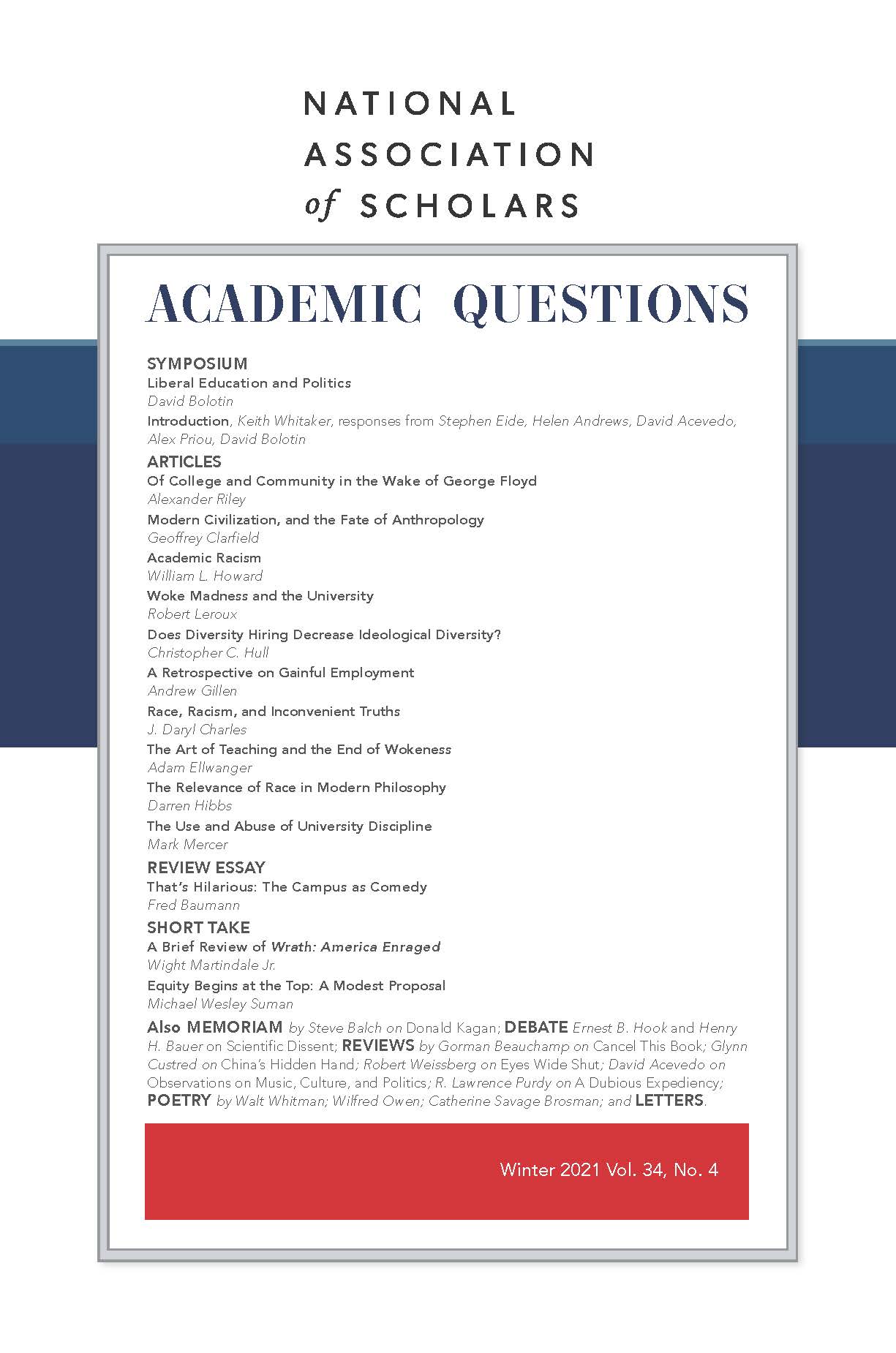Keith Whitaker is Chairman of the Board of Directors of the National Association of Scholars and President of Wise Counsel Research, a think-tank and consultancy focused on wealth and philanthropy. Along with college-level teaching and higher education administration, Whitaker has written extensively for such publications as the Wall Street Journal, New York Times, Financial Times, Claremont Review of Books, and Philanthropy Magazine. He is the author of Wealth and the Will of God (Indiana University Press, 2010) and A Journey into Platonic Politics: Plato's Laws (University Press of America, 2004) and co-author of six additional books.
It may seem otiose at a time like this to offer a literary symposium on liberal education. After decades of subjection to political correctness and every sort of race, class, and gender “study,” American higher education is now suffused with neo-racism. The effects of this corruption of the young can be seen in Antifa and BLM riots in our cities, “1619” indoctrination in our schools, the purging or suppression of political conservatives in the military and other institutions, naked manipulation of electoral and legislative processes for “progressive” ends, the infringement of civil liberties under ever-changing “expert” definitions of “public health,” and the selling out by American higher education and big business to a hostile foreign tyranny. Surely, there are more pressing concerns than liberal education?
This question becomes even more pointed when we consider the response to his critics by David Bolotin—tutor emeritus at St. Johns College, Santa Fe, whose December 2020 speech to students initiated this symposium—in which he argues that liberal education must always be the preserve of a few souls and so in no way a mechanism to “save” America. To whatever degree there is hope that the efforts of a group like the National Association of Scholars might contribute to that national cause, it most likely lies more in promoting a traditional approach to civics for all our people and in strengthening some understanding of and appreciation for American institutions among our elite.
And yet the defense of liberal education is not superfluous today, even if viewed through a political lens. Many conservatives claim to uphold “virtuous citizenship and the pursuit of truth”; but where can we find a thorough-going inquiry into what is virtue and what is truth, if not through liberal education? Likewise, progressives advance the goal of a more equitable society while often overlooking that this goal arose from a particular branch of the Western tradition, itself rooted in liberal education, and without considering that cutting themselves off from this root threatens their goal.
Further, as Mr. Bolotin stresses, the “higher understanding” of liberal education points to a way of life that transcends political passions, whether those are hopes for the as-yet-unrealized utopia, disappointment at its delay in materializing, or wrath at attempts to overturn the long-established ways. And this way of life is attended by a pleasure that is independent of political results or conditions.
That said, Mr. Bolotin’s speech, his critics’ replies, and his response to them, all underscore a development that will be familiar to readers of Academic Questions: Although half a century ago it was possible for a thoughtful proponent of liberal education to write, “No one prevents us from cultivating our garden . . .” that is no longer the case. The dominant illiberalism of our times means that everyone’s garden is under surveillance. The careful consideration of the obstacles to liberal education is now a matter of pressing practical (as well as theoretical) importance.
Image: Hello I'm Nik, Public Domain













